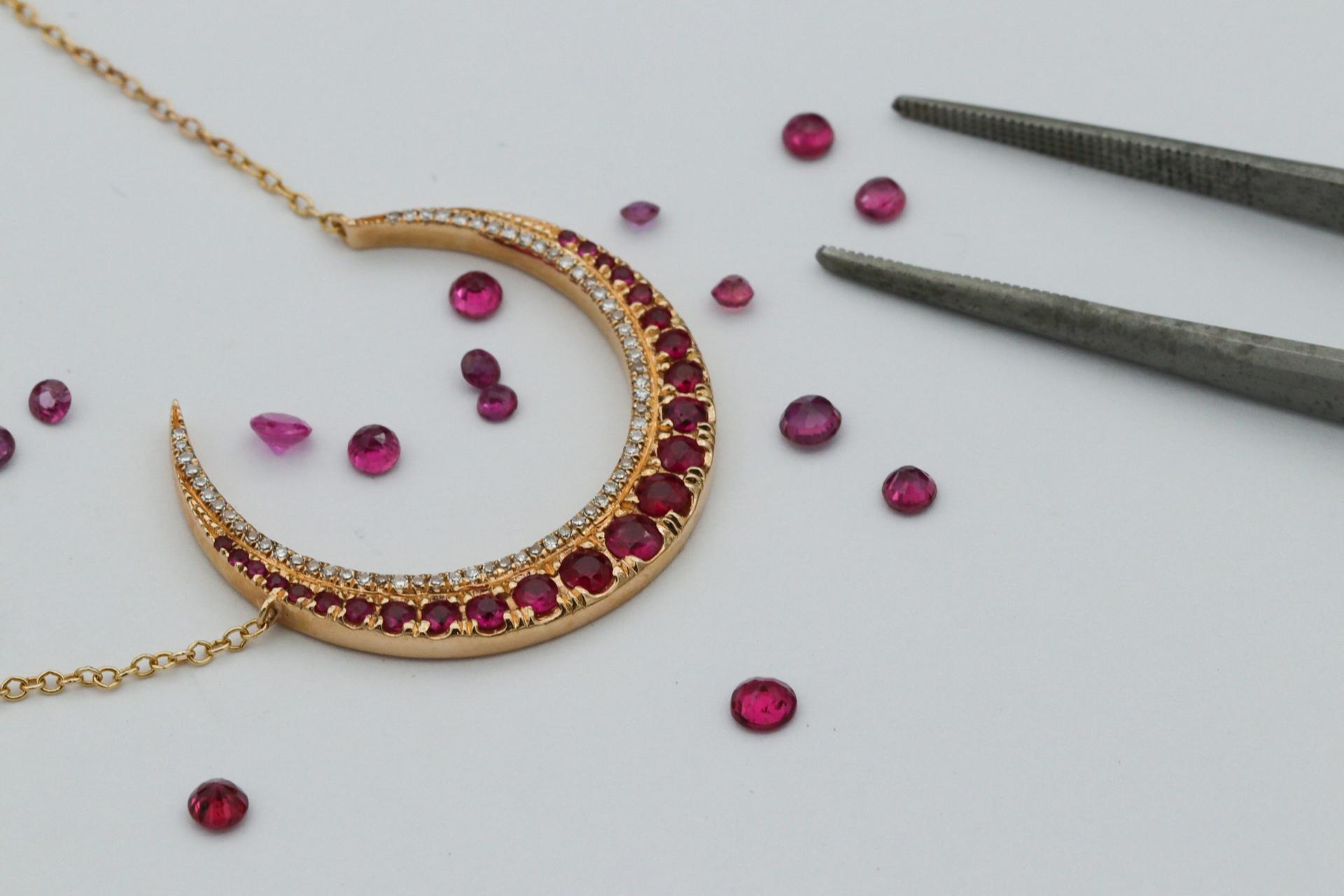Oh, hey there! Did you just type “ruby” into your search bar?
It’s interesting how one simple word can lead you down multiple internet rabbit holes. Scouring the internet for information is something a lot of people do (myself included). Take my tabs for example. When did I look up Litter-Robots? I don’t even have a cat! Then there’s my search for oceanfront properties in Myrtle Beach. One can dream, am I right?
But I digress…
So, which ruby were you looking for when you typed “ruby” into your search bar?
- Ruby, the precious gem?
- Ruby the programming language? Which also has ruby gems!
- Ruby, the virtual receptionist company? (That’s us!)
- Ruby Rose, the Australian model and actor?
Believe it or not, there are many rubies (or Rubys as we’re affectionately called) out there. Let’s see if we can help you find what you were looking for.
Ruby, the precious gem
I looked it up on the internet to save you a tab or two. Rubies are one of the four precious gemstones next to diamonds, sapphires, and emeralds. Sophisticated and beautiful, rubies range in color from pink to dark red. The most sought-after color of rubies is called “pigeon’s blood.” Pigeon’s blood rubies are dark red with hints of blue. Do yourself a favor and don’t look that up though, take my word for it!
Rubies are extremely hard and durable. Only diamonds are more resilient.
Historically speaking, ancient warriors believed that a ruby around their neck would protect them in battle. And the ancient people of India believed that rubies helped them keep peace with their enemies.
Larger rubies (we’re talking ten plus carats) are rare, making them even more expensive than similarly sized diamonds. One of the most expensive rubies ever sold went for 6.74 million USD in 2012. That ruby was called the “Hope Ruby.” The Hope Ruby has since been surpassed by the Sunrise Ruby, which sold in 2015 for over 30 million USD. On a sweeter note, the proceeds from the sale of the Hope Ruby and other pieces at the same auction went to charitable organizations. Another famous ruby was the “Liberty Bell Ruby.” The Liberty Bell Ruby was sculpted from the largest ruby ever mined. It was gifted to the United States during Eisenhower’s presidency. The Liberty Bell Ruby was stolen in a real-life heist in 2011 and hasn’t been found since.
Many of these famous rubies are mined in Myanmar (formerly Burma). Rubies are also mined in Thailand, Madagascar, Sri Lanka, and India. Rubies are an integral part of Asian culture, history, and folklore. Many buildings in Asia have rubies laid under the foundation to bring luck and fortune to the building’s occupants.
Rubies form when minerals interact together under intense heat and pressure below the earth’s surface. The primary mineral responsible for the formation of rubies is corundum. The presence of chromium increases the redness of a ruby. Larger rubies form when they are allowed to cool slowly over longer periods of time.
Imperfectly perfect.
Virtually all rubies have imperfections, or in gemstone lingo, inclusions. These inclusions are often how genuine rubies are identified and fakes are found. A ruby without flaws is probably not real. The epitome of luxury and folklore, a ruby (the gemstone) is a rare beauty with a lot of history.
Ruby, the programming language
Gemstones not your thing? What about Ruby, the programming language?
Programming what?
A programming language is a language that allows humans to communicate with computers.
Ruby is one such language that was developed in the mid-1990s by Yukihiro Matsumoto. Matsumoto was a programmer who knew many different programming languages and set out to develop one that was more natural (and free.)
Ruby is free to use, free to modify, and free to distribute—which is why so many programmers love Ruby! Ruby is also easier for beginners to master.
So, what does your average computer whiz use the Ruby coding language for? Hold on, don’t Google it, let me tell you!
Here are a few examples of web applications created using Ruby and Ruby on Rails:
- GitHub
- Shopify
- Airbnb
- Twitch
- Soundcloud
- Hulu
- Instacart
- Zendesk
- Square
- Codecademy
…and hundreds of thousands more!
Ruby is known to make the human programmers that use it happy when trying to talk to computers and machines because of its ease of use.
Oh. But you’re not here because you have an idea for a billion-dollar tech venture but you can’t-program-yet-so-it’s-still-just-an-idea. Never mind.
Are you a small business owner? Do you need a break from your 24/7/365 business that means-a-lot-to-you-but-you-also-have-responsibilities-and-obligations-outside-of-your-business-and-you-still-like-to-sleep-at-night? If so, you need a different Ruby!
That’s us.
Ruby, the virtual receptionist company

Can you relate to the many business owners who love being in business for themselves but also love being active members of their families and communities? Are you wondering how to find time to be a successful entrepreneur and a real-live human with hobbies, passions, and precious downtime?
You came to the right place, friend. Ruby isn’t just a virtual receptionist company. We are in the business of genuine human connection and human interaction. When it comes to your business, your humanness is the key to your success. But you are only one person, after all. When you need to turn off the phone lines or leave your web visitors, let Ruby step in to pick up right where you left off.
At Ruby, we do so much more than simply answer the phone. On the phone or over live chat, our dedicated professionals work to create memorable experiences with your clients and customers while you tend to other things in your life. Whether you’re sick, on vacation, or servicing other customers, Ruby can step in and provide the human connection that your customers expect.
So which Ruby were you actually looking for? If you own a business, it was hopefully us! Look how much time, tabs, and internet searching I just saved you.
Like the gemstone, Ruby is a luxury for your business that you can’t live without (see what I did there?).
To learn more about how Ruby can help your business grow, visit our small business hub!




